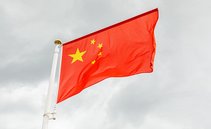Markets are still under pressure today, with 4 factors to carefully observe for their ability to shake global stock markets.

Markets grappling with at least 4 reasons for instability today, with stock indices meanwhile slipping into the red in Asia.
China, the USA, the United Kingdom, and the Eurozone remain under the spotlight of investors, looking for economic details to understand how the monetary policy of central banks will change in the coming months. The rate cut, for now, decided only by the ECB, is expected globally and today it is the Bank of England’s turn.
In the meantime, traders’ attention is maximum on China and its moves to revive internal growth, Artificial Intelligence, and the technological rally, of the bond sector.
Today focuses on at least 4 factors that continue to push towards instability and volatility.
1. Bank of England, rate cut?
All eyes are on today’s Bank of England meeting.
Investors and analysts expect the central bank to leave the reference rate unchanged at 5.25%, the highest in the last 16 years. Prime Minister Rishi Sunak’s move three weeks ago to call an election all but ruled out an interest rate cut.
The sterling held steady at $1.27125 in cautious trading but fell 0.2% in June.
Data on Wednesday showed British inflation returned to its 2% target for the first time in almost three years in May, but strong underlying price pressures all but rule out an interest rate cut before the election next month.
2. Asia thwarted
The People’s Bank of China set the yuan’s daily reference rate at its lowest level since November, a sign that policymakers are loosening their grip on the currency. The Japanese yen, however, oscillated between gains and losses after a five-session decline, which saw it close above 158 against the dollar. The Bloomberg dollar strength index remained little changed.
Asian stocks are taking a breather and “need a dose of adrenaline for another night of record highs on Wall Street”, said Tony Sycamore, market analyst at IG Australia. More importantly, Japanese traders are likely “scared of another round of currency intervention that will push USD/JPY and the Nikkei down with it.”
3. Euphoria and risks for Artificial Intelligence
The surge in tech stocks on Tuesday lifted AI chipmaker Nvidia above Microsoft as the world’s most valuable company, leading to a global rally in tech stocks.
The AI frenzy has seen tech stocks rise throughout the year, with Nvidia leading the pack alongside a select few giants, while US stocks hit record highs and also push their Asian counterparts.
According to Citigroup, AI is likely to replace more jobs in banking than in any other sector. Around 54% of jobs in the banking sector have high automation potential.
Over the last year, the world’s largest banks have slowly started experimenting more with Artificial Intelligence. Citigroup said it will equip its 40,000 programmers with the ability to experiment with different AI technologies, while JPMorgan is rounding up talent and Deutsche Bank is using Artificial Intelligence to scan the portfolios of wealthy clients.
4. China vs. Europe
China appears to be preparing a series of actions to punish the European Union for its proposed tariffs on electric cars.
Things were different in the major trade war with the United States, which featured sweeping sanctions on both sides. This time, Beijing’s targeted strategy looks more like the one it adopted against Australia a few years ago. With ongoing concerns about geopolitical risks, European stock futures are broadly stable in early trading today.
Original article published on Money.it Italy 2024-06-20 08:23:34. Original title: Mercati alle prese con 4 motivi di instabilità





